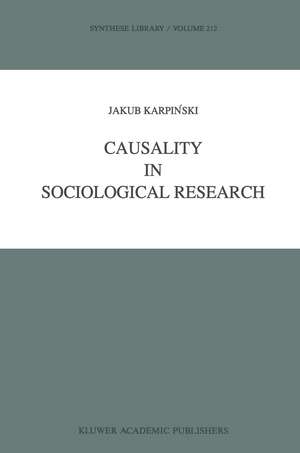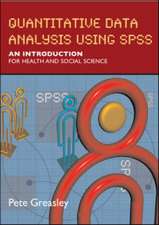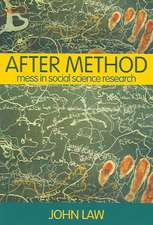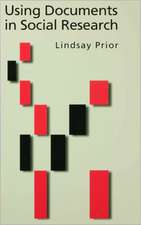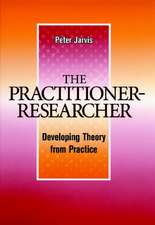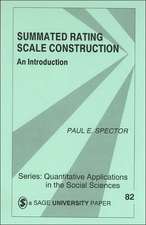Causality in Sociological Research: Synthese Library, cartea 212
Autor Jakub Karpinskien Limba Engleză Paperback – 20 sep 2011
Din seria Synthese Library
-
 Preț: 543.27 lei
Preț: 543.27 lei - 15%
 Preț: 625.52 lei
Preț: 625.52 lei - 18%
 Preț: 969.92 lei
Preț: 969.92 lei - 15%
 Preț: 584.63 lei
Preț: 584.63 lei - 18%
 Preț: 885.61 lei
Preț: 885.61 lei - 15%
 Preț: 575.02 lei
Preț: 575.02 lei - 15%
 Preț: 682.42 lei
Preț: 682.42 lei - 18%
 Preț: 874.82 lei
Preț: 874.82 lei - 15%
 Preț: 630.33 lei
Preț: 630.33 lei -
 Preț: 282.33 lei
Preț: 282.33 lei -
 Preț: 434.20 lei
Preț: 434.20 lei - 5%
 Preț: 364.71 lei
Preț: 364.71 lei - 15%
 Preț: 624.71 lei
Preț: 624.71 lei - 18%
 Preț: 939.44 lei
Preț: 939.44 lei - 15%
 Preț: 629.38 lei
Preț: 629.38 lei - 18%
 Preț: 1205.69 lei
Preț: 1205.69 lei - 15%
 Preț: 629.83 lei
Preț: 629.83 lei - 18%
 Preț: 980.11 lei
Preț: 980.11 lei -
 Preț: 381.87 lei
Preț: 381.87 lei - 15%
 Preț: 624.39 lei
Preț: 624.39 lei - 18%
 Preț: 932.97 lei
Preț: 932.97 lei - 18%
 Preț: 1206.35 lei
Preț: 1206.35 lei - 15%
 Preț: 632.90 lei
Preț: 632.90 lei -
 Preț: 387.90 lei
Preț: 387.90 lei -
 Preț: 392.43 lei
Preț: 392.43 lei - 18%
 Preț: 1200.62 lei
Preț: 1200.62 lei - 15%
 Preț: 625.98 lei
Preț: 625.98 lei - 18%
 Preț: 1207.09 lei
Preț: 1207.09 lei -
 Preț: 372.80 lei
Preț: 372.80 lei -
 Preț: 386.95 lei
Preț: 386.95 lei - 15%
 Preț: 627.43 lei
Preț: 627.43 lei - 15%
 Preț: 626.15 lei
Preț: 626.15 lei -
 Preț: 374.30 lei
Preț: 374.30 lei - 15%
 Preț: 630.01 lei
Preț: 630.01 lei
Preț: 374.30 lei
Nou
Puncte Express: 561
Preț estimativ în valută:
71.64€ • 74.47$ • 59.34£
71.64€ • 74.47$ • 59.34£
Carte tipărită la comandă
Livrare economică 04-18 februarie 25
Preluare comenzi: 021 569.72.76
Specificații
ISBN-13: 9789401067096
ISBN-10: 9401067090
Pagini: 200
Ilustrații: 192 p.
Dimensiuni: 152 x 229 x 11 mm
Greutate: 0.27 kg
Ediția:Softcover reprint of the original 1st ed. 1990
Editura: SPRINGER NETHERLANDS
Colecția Springer
Seria Synthese Library
Locul publicării:Dordrecht, Netherlands
ISBN-10: 9401067090
Pagini: 200
Ilustrații: 192 p.
Dimensiuni: 152 x 229 x 11 mm
Greutate: 0.27 kg
Ediția:Softcover reprint of the original 1st ed. 1990
Editura: SPRINGER NETHERLANDS
Colecția Springer
Seria Synthese Library
Locul publicării:Dordrecht, Netherlands
Public țintă
ResearchCuprins
I. Conditioning of Events versus Causal Conditioning.- 1. Kinds of events and kinds of conditions.- 2. Some properties of the relation of conditioning: symmetry and transitivity.- 3. Temporal relations among events. The broadest interpretation of causal conditioning.- 4. A narrower interpretation of causal conditioning: events as changes.- 5. Other narrower approaches to causal determination.- 6. Relations among events, among features and among variables.- 7. Kinds of methods of establishing causal relations.- 8. Conclusions.- II. The Simplest Case of Causal Analysis.- 1. Preliminary remarks.- 2. Statistical relationship.- 3. Dichotomous systems.- 4. Interactions among variables.- 5. Causal relationship as a relationship which is not spurious.- 6. Probabilistic definition of cause.- 7. Cause as a necessary component of a sufficient condition.- 8. Conclusions.- III. The Causal Interpretation of Relationships in Non-experimental Single Studies.- 1. The occurrence and non-occurrence of causal relationships.- 2. Intensity of causal relationships.- IV. Verification of Statements on Causal Relationships in Diachronic Research.- 1. Kinds of processes and methods of studying changes.- 2. The panel method and the verification of statements on causal relationships.- V. Verification of Statements on Causal Relationships in Experimental Research.- 1. Classical experiment.- 2. Experiment with four groups and with the possibility of controlling the effect of the first study.- 3. Incomplete schemata of experiments.- 4. Enriched schemata of experiments.- 5. Conclusions.- VI. Causal Analyses and Theoretical Analyses.- 1. Causal analyses as theories.- 2. Causal “models”.- 3. The concept of cause.- 4. The problem of determinism.- VII. Human Beings and Collectivities. The Problem ofthe “Level of Analysis” in Sociology.- 1. Three meanings of membership in a collectivity.- 2. Social wholes.- 3. Classification of variables.- 4. Contextual properties.- 5. Ecological correlation.- 6. Reductionism.- Concluding Remarks: Problems Raised and Results Obtained.- Notes.- Bibliographical Postscript.- Index of Names.
